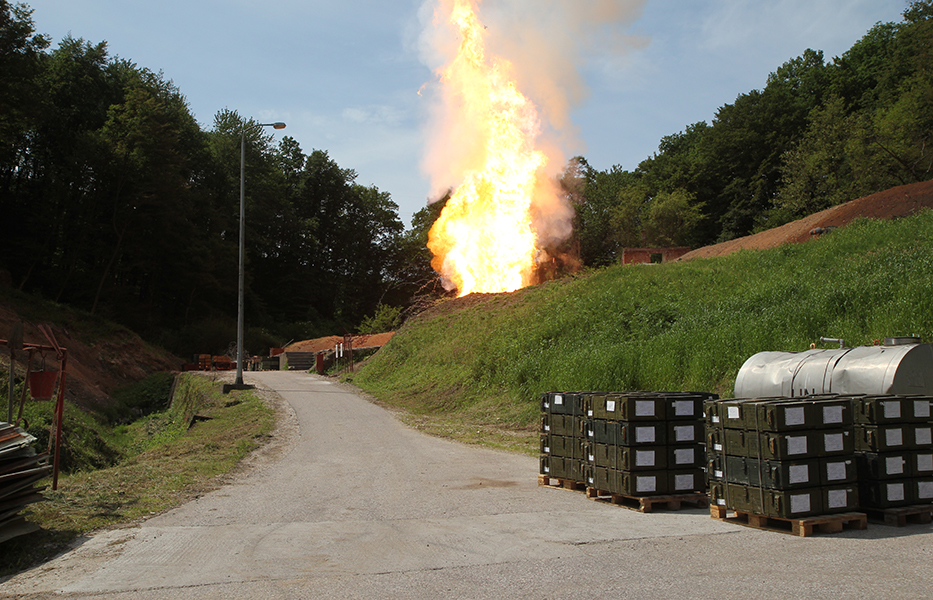One year review for Atalanta
(BRUSSELS2) The time for a one-year assessment is coming for the European anti-piracy operation EUNAVFOR Atalanta which will certainly be renewed for an additional year, "until December 2010", by the Foreign and Defense Ministers, meeting in Brussels in mid-November. The politico-military group has just summarized the main points. Most are known to readers of this blog. But certain elements (cooperation with Puntland, possible participation of new third countries, follow-up of suspects taken prisoner, etc.) are interesting.
Numbers. Currently 22 States (20 EU members and 2 third States) participate in the operation and are represented either at the Operation HQ (OHQ) in Northwood (United Kingdom), or at the Force HQ (FHQ) at sea (Indian Ocean). Among them, 11 States (Belgium, France, Germany, Greece, Italy, Luxembourg, Netherlands, Spain, Sweden, United Kingdom) including one non-EU member (Norway) sent resources on site (1). 9 ships are currently "in the area" and 2000 men and women deployed on board maritime patrol ships and aircraft. But Dince December 2008 (beginning of Atalanta), 33 warships (frigates and corvettes), 4 supply ships and 5 maritime patrol aircraft have taken part in the operation. In terms of future participations, Atalanta confirms having sent a formal invitation to South Africa and maintaining close contacts with theAustralia and New Zealand. The operation is taking place in close collaboration with CTF 151 (USA and other States) and the NATO mission (CTF 508) (NB: in particular through access to secure chat). Cooperation has also been established with most of the States present in the area with naval and/or local forces: China, Russia, Saudi Arabia, Japan, Malaysia, Yemen, Oman, Egypt and Seychelles.they.
Success for the WFP escort. As of October 1, EUNAVFOR had escorted 49 World Food Program ships, or 307.000 tonnes of food to feed more than 1,6 Somalis, according to the European Union. A "task assured with a success rate of 100%She also provided support to the UN/AU Operation in Somalia (AMISOM) by escorting 6 AMISOM ships. A task that is expected to expand in the future, the United Nations having decided to increase its logistical support to AMISOM. With regard to merchant ships, the establishment of the International Recommended Transit Corridor (IRTC), and the system of transit groups (with escort of merchant ships taken into load by each ship of the international forces in turn, and division of the area into geographical "boxes" to ensure better coverage), largely driven by the European operation, made it possible to secure the area.
The arrest and translation of pirates. This is one of the innovative points of the European operation (compared to other interventions). A transfer agreement has been signed with the Kenya and another with Seychelles. Aid of 1,75 million euros was provided to Kenya to support its justice sector (2). "Discussions continue with other countries in the region to establish other arrangements for the transfer and prosecution of suspected pirates". At the balance sheet level, "70 suspects were captured, 68 transferred to Kenya, 2 to Spain", according to the Atalanta balance sheet (my balance sheet is slightly different because it also takes into account the pirates captured in Operation Atalanta but transferred, then, under national flag: Seychelles before the agreement, and Puntland-Somalia by tacit arrangement of France, see it updated page). Regarding the procedures followed,specific instructions have been given for the treatment of those detained on board". And, in Kenya, a follow-up of the people transferred was carried out. "At the request of Atalanta, the Kenyan Red Cross and a local NGO visited the prisoners".
Reducing piracy, Puntland and Somaliland. The European military remains realistic. Operation Atalanta "is not going to solve the problem of piracy". They also recall, not without reason, that the area covered (Gulf of Aden, southern Red Sea, part of the Indian Ocean to the Seychelles) represents the equivalent of the Mediterranean. "The eradication of piracy in the region can only be achieved with the stabilization of Somalia." This is the whole point of "theglobal approach" which the EU is currently pursuing covering both "humanitarian, development, security and political aspects" such as European support for the Transitional Federal Government of Somalia (TFG), reaffirmed many times (3). For the first time, in black and white, the EU acknowledges having established (I might add: regular) contacts with the regions Autonomous Puntland and Somaliland, "in complete transparency with the GFT" (One of the avenues followed, in fact, by the EU would consist in supporting stability in these two regions which also seem more easily suited to organizing the fight against piracy).
(1) NB: 11 others have more limited staff, often at the General Staff (Bulgaria, Cyprus, Finland, Hungary, Ireland, Latvia, Malta, Poland, Romania, Slovenia et Croatia*)
(2) NB: The granting of aid - 800.000 euros - for the Seychelles seems still in progress and difficult to conclude according to other elements that have reached me.
(3) In its program document on Somalia, the European Commission has earmarked EUR 215,8 million for Somalia under the European Development Fund. Sum to which must be added 45 million euros paid this year for humanitarian aid (estimate for 2009). At the political level, Javier Solana recently received the Prime Minister of Somalia
to reaffirm the support of the EU (download the statement).

Comments closed.